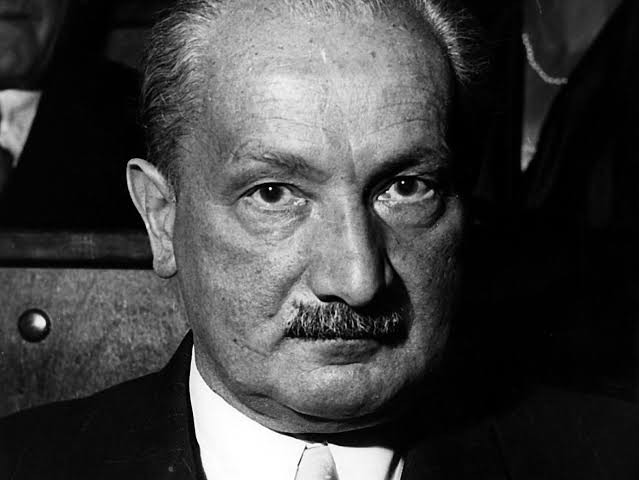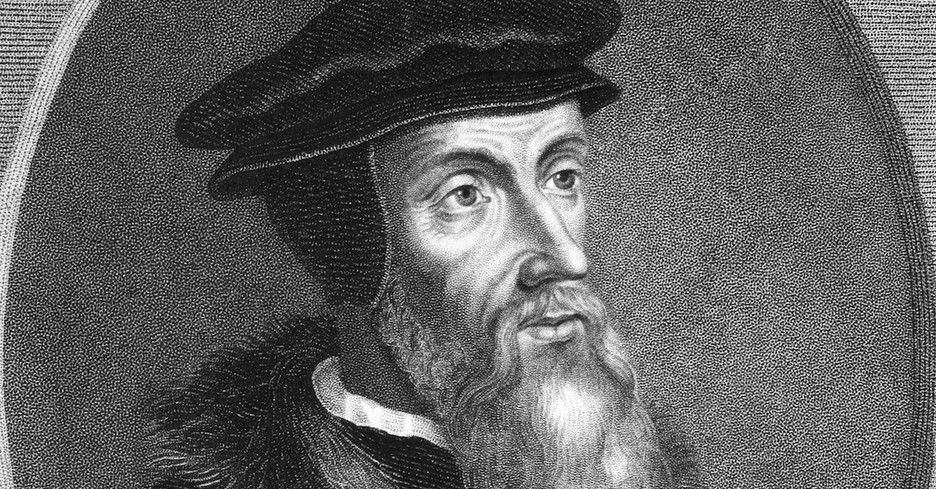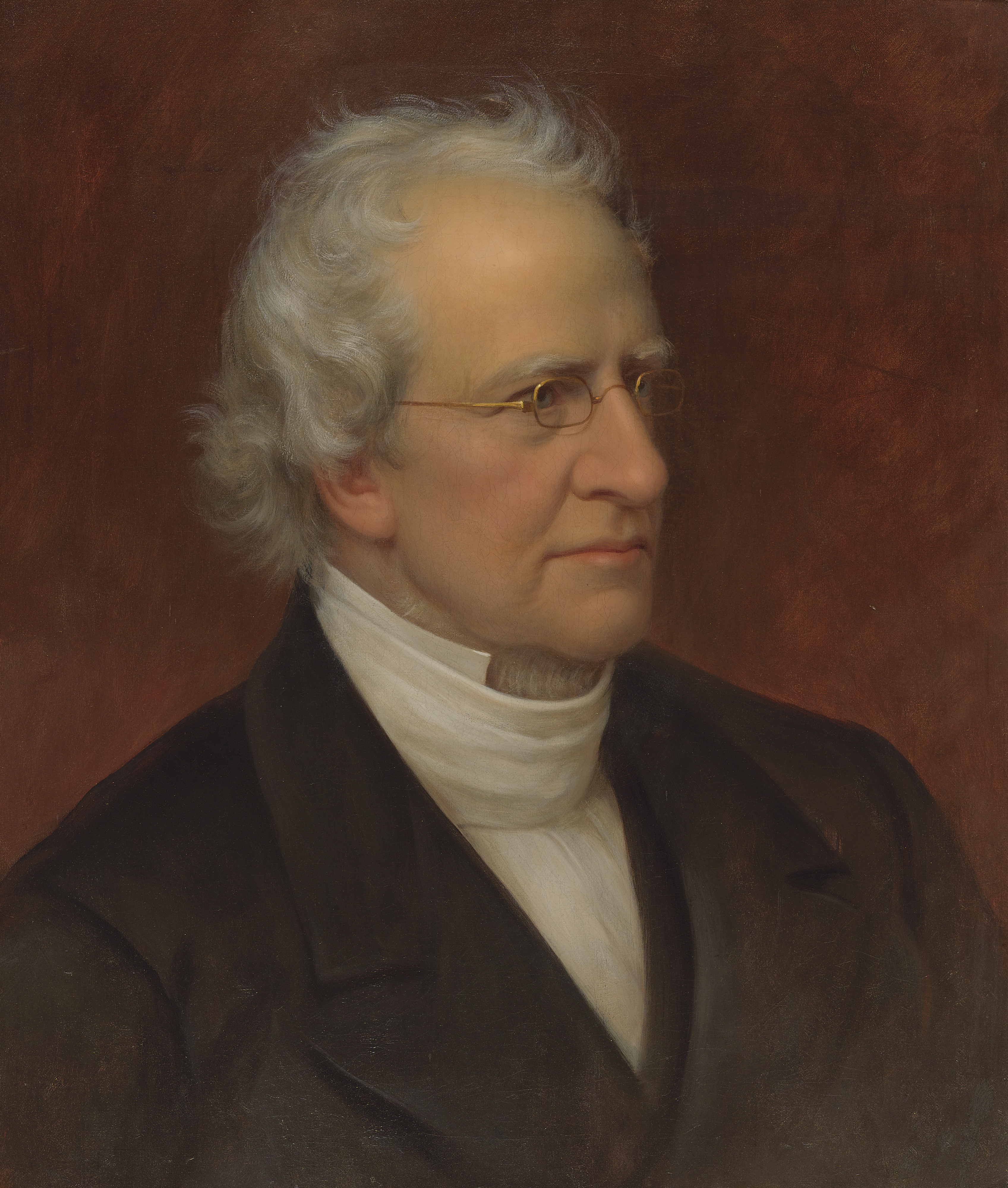Introduction: Why Heidegger?
Martin Heidegger is the hidden master of modern thought. His influence on thinkers in the second half of the twentieth century, though often unspoken, is all pervasive, especially in that mélange in the humanities known curiously as 'theory.' Heidegger's thinking is both a profound philosophy and a radical critique of the fundamental assumptions of modernity. Heidegger was a philosopher who gave supreme importance to some poetic texts. He retained, however, a philosopher’s contempt for the field of literary criticism, with its mix of moralism and amateur philosophizing. Heidegger’s thinking embraced not just the philosophical and social crisis of Germany at this time, but became a powerful reassessment of the most basic values and assumptions of Western civilization since ancient Greece. Heidegger is widely regarded as the greatest philosopher of the twentieth century.
The Limits of the Theoretical
Heidegger was known as the most influential thinker in the second half of the twentieth century. His concept was to free ourselves from 'the technical interpretation of thinking.' His topic is in fact the obvious, things so basic as to seem beyond question and self-evident, believing that the current European and global history is based on ancient Greece. This view of humans as resources is a threat to the world. Heidegger’s 'being' is neither pointlessly empty nor vacuously general, and his 'history of being' can be thought of as a history of the obvious, which means not an obvious history but an attention to how the very horizon within which all things are unconcealed for us has changed, is itself historical. Western thought, since the inception of philosophical questioning in ancient Athens, is driven towards a knowledge that would be a timeless, unconditioned truth about the universe and human life, a knowledge based not on dogma, religious or otherwise, but on what is attested to human reason alone. This is the supposedly 'true' world, perceivable with difficulty by the mind alone, as opposed to the 'lesser' immediate world of sensations, passions, and interests in which we find ourselves. Heidegger’s is a thinking of the finitude of human life. Thought cannot transcend its own historicity, or achieve, except in fantasy, that kind of assured un-worlded 'truth' idealized in Western cultures.
The Pre-Theoretical Conditions of Theory
Heidegger turns to a reconsideration of our day-to-day ordinary, taken-for-granted understanding of things and each other. 'Theoreticism'—the crucial assumption that understanding consists in having an implicit or explicit theory of what is being understood, that all human behavior is a kind of knowing in some sense—is challenged. Human existence involves a vast range of contextual knowledge which is inherently unformalizable. It is, in Heidegger’s words, a 'background of . . . primary familiarity, which itself is not conscious and intended but is rather present in [an] unprominent way.' This falsely suggests that a 'world' is a particular stance that people or individuals hold inside their heads, as representations, rather than the more fundamental shared disclosure of things within which they find themselves in all their thoughts, practices, and beliefs, providing the basis even of their self-conceptions and suppositions.
The View from Nowhere?
We can draw on the example of AI to instantiate another strong feature of much of Western metaphysics, one that has again come to pervade common sense. If we talk of the nature of knowing, or of thinking about or perceiving some object, we almost always pose the issues in the following way: that there is a mind or consciousness on the one side and a realm of things and other minds on the other, and that knowing or perceiving mean the taking of representations of things 'out there' into the realm of the mind. Heidegger is attacking the reductionist, mind-as-data-processor model of perception. For him, 'World is understood beforehand when objects encounter us. It was for this reason we said that the world is in a certain sense further outside than all objects, that it is more objective than all objects but, nevertheless, does not have the mode of being of objects.' Heidegger believed in holism, not in Dasein. Scientific objectivity remains intact, but as the methodological standard appropriate for some kinds of investigation, not as the sole measure of legitimate knowledge.
Truth as Correctness and Truth as Unconcealment
Truth means today and has long meant the agreement or conformity of knowledge with fact. However, the fact must show itself to be fact if knowledge and the proposition that forms and expresses knowledge are to be able to conform to the fact. Were no thing unrevealed for us, there could be no 'truth' in the accepted sense of correspondence. He is arguing that all theories of human life are made possible by a pre-theoretical relation to being that must always be assumed but which could never be fully conceptualized.
Deep History (Geschichte)
Human beings are essentially historical. They are born into an environment already formed by multiple layers of interpretation and tradition, even down to the most seemingly immediate sense of things and of the 'I' that perceives and thinks them. Heidegger’s summary statement that 'The essence of Dasein lies in its existence' encapsulates this. For Heidegger, 'The beginning exists still. It does not lie behind us, as something long past, but it stands before us.' This culminates in the globalized, technological civilization that Heidegger saw as a threat to the very essence of humanity. 'The limitless domination of modern technology in every corner of this planet is only the late consequence of a very old technical interpretation of the world, the interpretation that is usually called metaphysics.'
What Happens in Deep History (Geschichte)?
History (Geschichte) for Heidegger is seldom significant in the conventional sense. The Second World War, he claimed controversially, decided nothing. The same dominance of protectionist metaphysics remained as before, its nihilism intensifying with the globalization of Western modes of rationality. For him, the history of being highlights only three truly 'historical' events. First is the translation of the Greek world into Roman Latin, for instance, the word 'physis,' commonly translated as 'nature' (cf. 'physics') but more precisely the 'self-unfolding emergence' in which individual things come forth from obscurity. In Latin, however, where 'physis' becomes 'natura,' this sense was lost, and another manner of world held sway. A second crucial shift occurs with the entrenchment and transformation of that Roman stamp in medieval Christianity. With Christianity, a theological slant is given to the reductionist basis of Western thought. God is seen as the great author and 'manufacturing cause,' and 'nature' is not physis or the openness of unconcealment, but God’s created product. Finally, there is the emergence of modern metaphysics and science in the seventeenth century, the dominance of questions of method in all pursuit of truth, and the would-be mathematization of nature.
The Epoch of Techno-Science
According to Heidegger, the question is not one of science considered as simply representing an object-world but more fundamentally of a general stance towards entities: the decision in favor of certainty in representation, calculability, and hence control of nature, which correspondingly appears under the guise of the totality of exploitable objects. To respond to the call of the principle of reason is to 'render reason,' to explain effects through causes, to ground, to justify, to account for on the basis of principles or laws. Technology is not the application of science. There is not theory on the one side and its practical implementation on the other. Rather, science is one manifestation of the technological stance towards entities. How will the future be? For him, the present epoch is not a random result of anything; rather, it will endure for centuries before another mode of being might emerge, and he believes that history is not under human control, and the future, with the great danger of technology, also harbors a saving power.
The Origin of the Work of Art
‘The Origin of the Work of Art’ is described as simply 'the most radical transmutation of aesthetics' or the philosophy of art. The words that described aesthetics like 'form,' 'content,' 'individual creativity,' 'meaning,' 'artist’s intention,' 'aesthetic experience,' or 'aesthetic judgment' or 'taste' are not used; rather, terms like 'world,' 'earth,' 'strife,' and 'Saying' are put to work. Unlike other philosophers, art, for Heidegger, is finite and something that can die. Dying, it can lose its power of disclosure and appear merely as an attractive object to be hung in a museum, or toured on holiday; or it may be reduced to a small element of the education system or appropriated as a cultural asset, as 'heritage.' The most accepted saying, 'the artwork is to be understood under the category of representation,' was totally rejected by Heidegger. For him, art presents its own unique and ultimately inexplicable mode of being, something for the reader, beholder, or listener to dwell within and not merely something to decode. Great art is involved with truth, not in the sense of the conformity of a proposition to a given state of affairs, but as aletheia, unconcealment.
Art, then, is not a matter of description or representation. For instance, a building clearly cannot be seen as a representation of anything whatsoever. Heideggerian defamiliarization has a holistic 'transcendental' aspect, i.e., in seeing its object anew, it transforms our sense of the whole context of practices and perceptions in which that object inheres. The artwork has more the mode of existence of a kind of action or practice than of a static object, and it is the singularity of the work as exceeding the planning or intentional labor of the writer. The artwork is not simply the creative projection that unconceals a world, nor, equally, does it simply arise out of the earth (as in Romantic ideas that art is the highest manifestation of some creative force already at work in nature). 'Earth' in relation to the work of art is the material out of which it is made, and a literary work is made from language. The supposedly purely sensuous aspect of the word-sound, conceived as mere resonance, is an abstraction. Even when we hear speech in a language totally unknown to us, we never hear mere sounds as a noise present only to our senses—we hear unintelligible words. But between the unintelligible word and the mere sound grasped in acoustic abstraction lies an abyss of difference in essence.
The Death of Art?
‘The Origin of the Work of Art’ introduces one of Heidegger’s most distinctive but least recognized topics, that of the death of art. For Heidegger, the task of the reader, etc., is to 'preserve' the singular world-soliciting thrust of the work, its singularity. To preserve the singularity of the work is a matter of holding open, as it were, that force of disclosure to which, as we have seen, the artist already responds in the emergent work, and not to make of the work an object onto which predetermined labels could be fixed. Art’s death is not instantaneous and is still in process. For Heidegger, such dying is perhaps what modern art is. 'The dying occurs so slowly that it takes a few centuries.' But only to see this disjunction as the end of art, and modern art as rootless and nihilistic.
Language, Tradition, and the Craft of Thinking
When tradition thus becomes master, it does so in such a way that what it 'transmits' rather becomes concealed. Tradition takes what has come down to us and delivers it over to self-evidence; it blocks our access to those primordial 'sources' from which the categories and concepts handed down to us have been quite genuinely drawn. The crucial issue for Heidegger after Being and Time becomes language, and the language of tradition, what it covers over, the resources it draws from, what it reveals in its unsaid. Tradition for Heidegger is an object of destruction or deconstruction, but this is not a simplistic gesture of rejection. After all, what else do we have to think with? The language of tradition also contains the unthought traces of its own unbuilding: 'It is simply a matter of listening to this tradition in return, and thereby examining the prejudices and pre-judgments in which every thinking, in its own way, must dwell.' Heidegger believed that only a thoughtful dwelling in the language world of Greek—'the historical spirit of a language as a whole'—will enable a translator to undertake the job of finding the German that responds to the Greek. The choice of German will likewise have genuine force if it proceeds not from a bookish dictionary-led competence but from its speaker’s own 'translation' into the language-world of German. This is to reawaken the context assumed in and projected by that language, not in the sense of the particular historical circumstances of a word such as logos, but in terms of its inflection of the basic take upon being at work in the Greek, i.e., Heidegger always reads with a view not to Historie but to deep history (Geschichte).
To imagine not having language is as impossible as imagining having nothing to imagine with. There is no way to language except as a path that turns back upon itself, transforming itself as it does so. The aim must be to avoid merely writing about language but 'to bring language to language as language.' Heidegger rejects the received, common-sense view that language is primarily a tool of human communication. This view is superficial, he argues, because it presupposes the deeper way in which language, even as we speak, already forms a kind of all-pervading environment, making things articulable for us in a world in the first place.
Quizzical Interlude: What is a Literary Work?
You may like to know about an intellectual conjuring trick that proves, or seems to prove, that a literary work does not exist. You take various plausible ideas as to what sort of thing a given work is, and then show with one or two simple arguments that it cannot be anything of the sort. Finally, as various ideas as to its mode of being are exhausted, the work seems to have been proved not to exist. Heidegger’s interest is not in the work as an historical object, but rather in its relation to deep history (Geschichte), its continuing engagement with major questions in human existence, with assumptions which change only rarely over the centuries.
Heidegger and the Poetic
Behind the technological world, there is a mystery. This world is not just a creation of human beings. No one knows whether and when humans will ever experience this emptiness as the 'sacred empty.' It suffices that this relation remains open. Heidegger, in 1914, said, 'My thinking stands in an unavoidable relationship to the poetry of Hölderlin.' Heidegger’s work on the poetic has been immensely influential, but not on the surface. For instance, the later Heidegger further elaborates his dichotomy of 'earth' and 'world' into a 'fourfold,' derived from Hölderlin, of 'mortals,' 'earth,' 'sky,' and 'divinities.' The second contextual reason for Hölderlin’s decisiveness is that his poetry and thought are in dialogue with the Greek beginnings of Western thought, a dialogue so profound that Heidegger sees Hölderlin alone among the great thinkers and writers of this time. Dichtung in Heidegger is a strongly evaluative term, naming a work of language which has all the features of a genuine work of art.
Nazism, Poetry, and the Political
Farias’s argument that Heidegger was a Nazi throughout his life and his work thoroughly fascist is easy to dismiss. Heidegger, by opposing the importance of individual political and economic rights and considering them a threat to social cohesion, and by considering Nazism as ensuring social solidarity, joined the movement and claimed that 'The individual by himself counts for nothing. It is the destiny of our nation incarnated by its state that matters.' Why was Heidegger silent on the extermination or Holocaust of Jews? He never gives any hint. Even though many reasons were given, there was no sure answer. But it can be seen that viewing the Holocaust as a manifestation of European nihilism in general is to evade the specific German responsibility for the murders. Heidegger believed, until the end, in a shift in the most basic attitudes and 'world.' His readings, though not overtly sided with politics, were not entirely clear about it; they had some place in it. Partly, they involved the reduction of a poetic or philosophical text to being a function of social and historical debate, and on the other side, they offered good ideas for society against technological exploitations.
After Heidegger
Heidegger’s overall influence on modern thought is simply too vast to document in a book focused primarily on questions of the poetic. He had a contribution in all areas: the nature of technology, the nature of history and historical study, environmental ethics, the nature and limits of science, religion, medicine, psychoanalysis, the nature of Nazism, the relation of the West and Asian thought, and so on. Though there is no Heideggerian school of literary criticism, he had an effect upon the specific field of literary study. He had a deep critical thinking evaluation about the nature of Western history and development. He also tried to show us truth in different areas. In America, Heidegger’s texts provide a defense of poetic language. His work also enabled critics to take up the kind of 'antihumanist' position on the agenda in structuralist and emergent 'poststructuralist' criticism at this time. Heidegger’s general effect on the thought of the second half of the twentieth century was often to induce a 'hermeneutic turn,' i.e., a new concern with the nature and finitude of all acts of interpretation affected such diverse areas as anthropology, law studies, debates about cognitive science, and, of course, literary studies. The reworking of Heideggerian thinking on the poetic in the work of Blanchot and Derrida might also be termed a thought of the earth, sometimes against aspects of Heidegger’s texts.
Reflection
Martin Heidegger is an intelligent, highly accessible introduction to the German philosopher’s complex intellectual trajectory. He was a uniquely gifted practitioner of the difficult art of reading. He can be explained as the most influential, elusive, and controversial figure in modern poetics and criticism. Though he was not explaining much about theology, he had an impact and helped to see things in different perspectives. The church’s theology was to some extent based on Greek ideologies, Platonic and Aristotelian. For instance, the Platonic teaching was early engraved in the church. Thomas C. Oden said in his book, How Africa Shaped the Christian Mind, 'It is seldom mentioned in the philosophical literature that the earliest advocates of Neo-Platonism did not reside either in Greece or Rome, but in Africa. It is surprising to Hellenistic chauvinists to be reminded that Philo, Ammonias Saccas, and Plotinus—the central players in Neo-Platonism—were all Africans. After taking firm root in the Nile Delta, in due time it would move north to Rome and Athens and Byzantium. Some African-born philosophers like Marius Victorinus would come to reside in Rome; others like Bishop Synesius would remain in Cyrenaica. Christian teachers like Clement of Alexandria were among the earliest to set forth circumspect connections and distinctions between logos philosophy and the Christian teaching of God. The Neo-Platonism influences on the early Augustine are well known. But what is seldom noted is that these influences appeared earliest in Africa before they migrated north.' On the other hand, the presence of Aristotelian teaching is rooted in the church. Colin Brown, in Philosophy and the Christian Faith, notes, 'Greek thought left its mark not only upon the content but also upon the form of much medieval Christian writing. This is true in varying degrees of the two medieval thinkers who count for most in philosophical theology today, Anselm of Canterbury and Thomas Aquinas.'
Critical Question
Discuss how Greek philosophy and ideology influenced Western society and, overall, how it became engraved in the church from ancient times.




